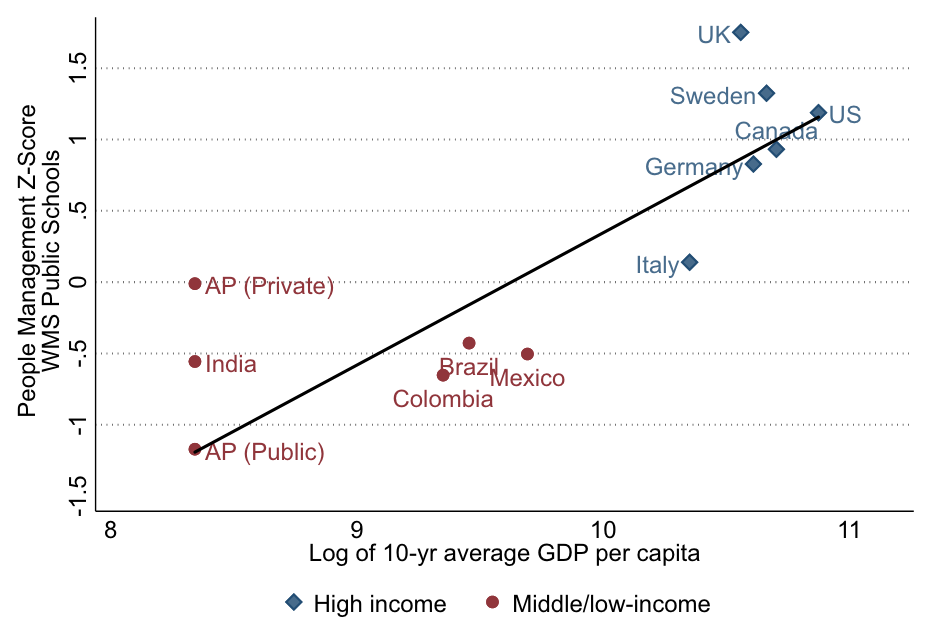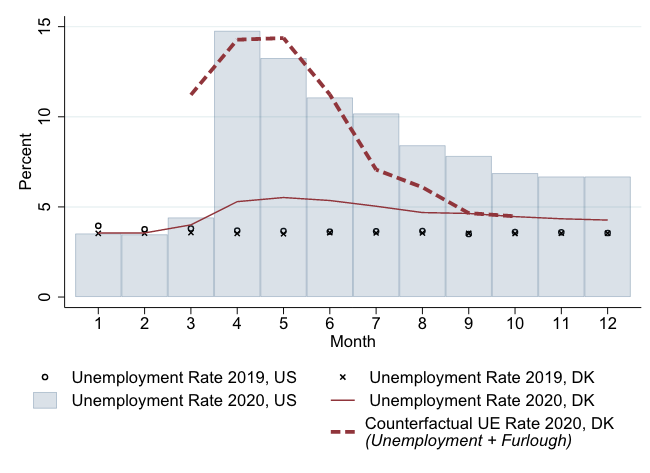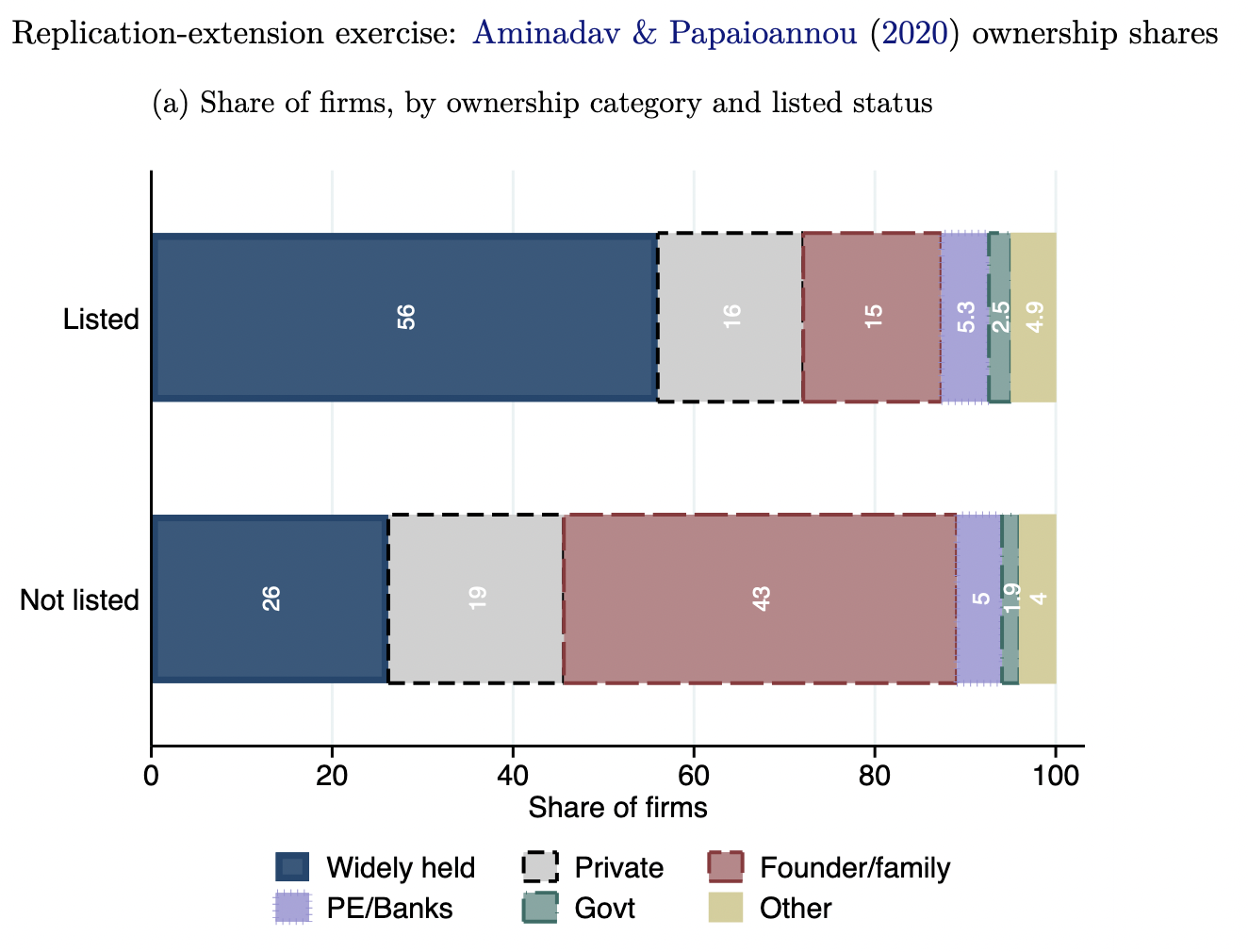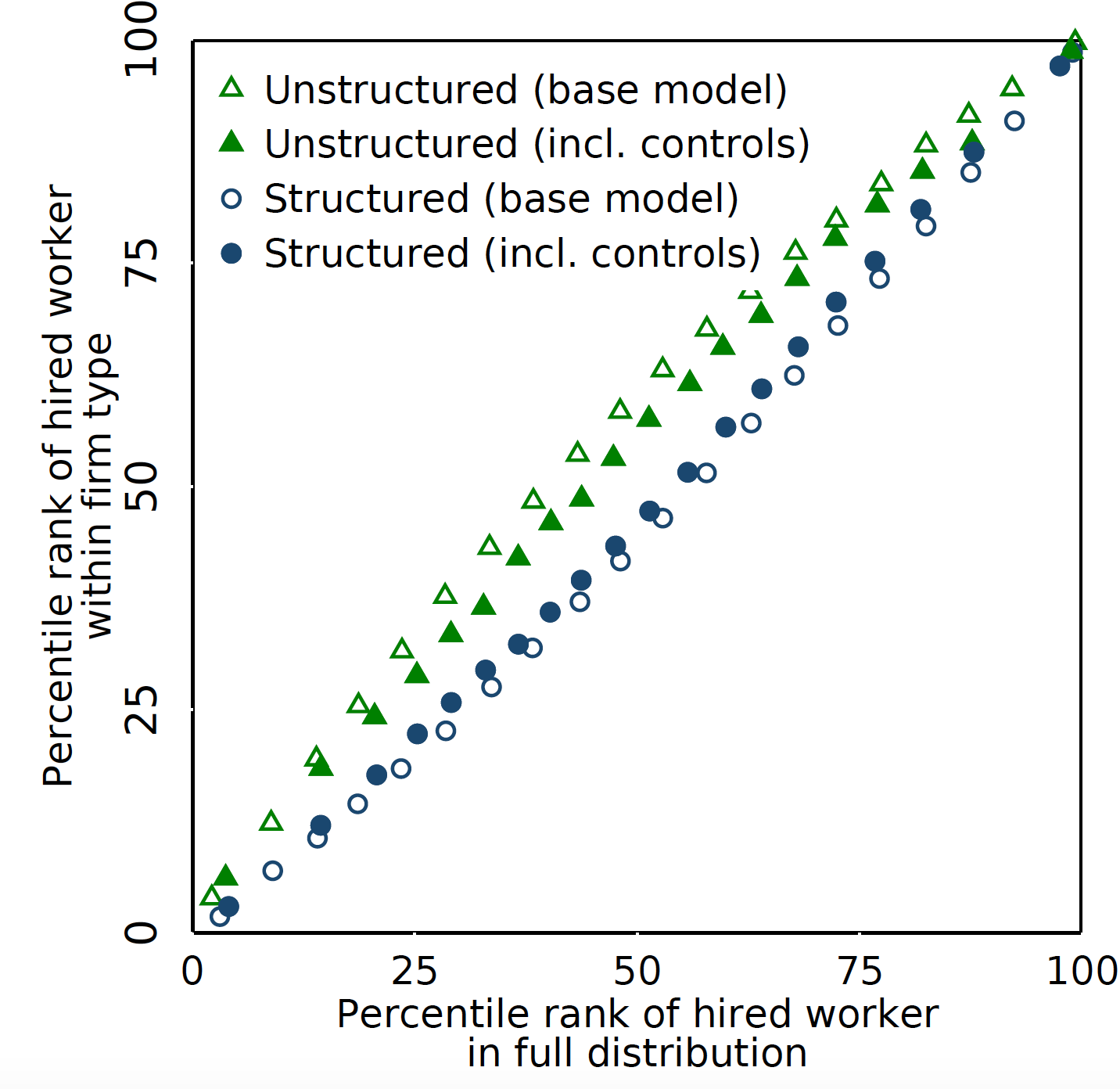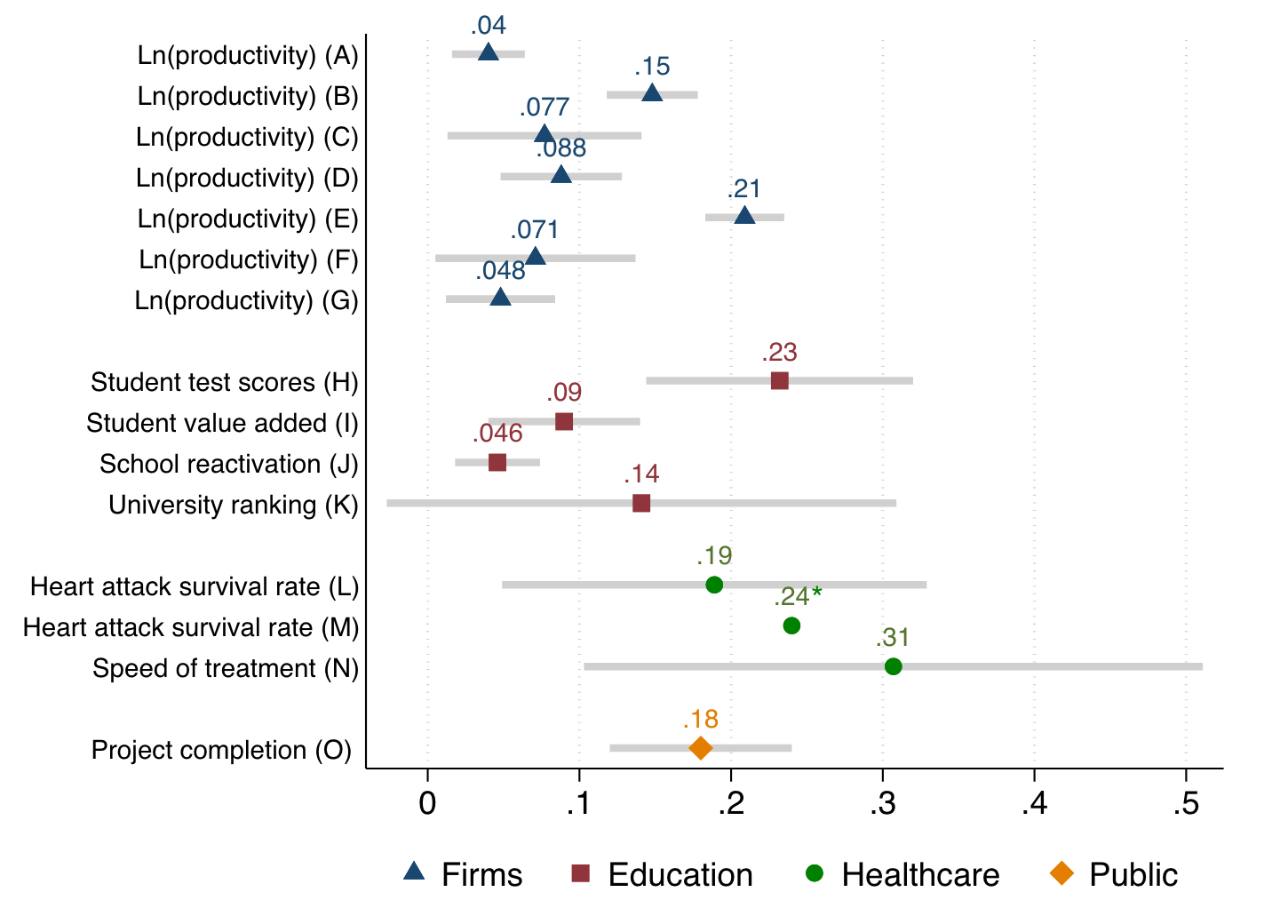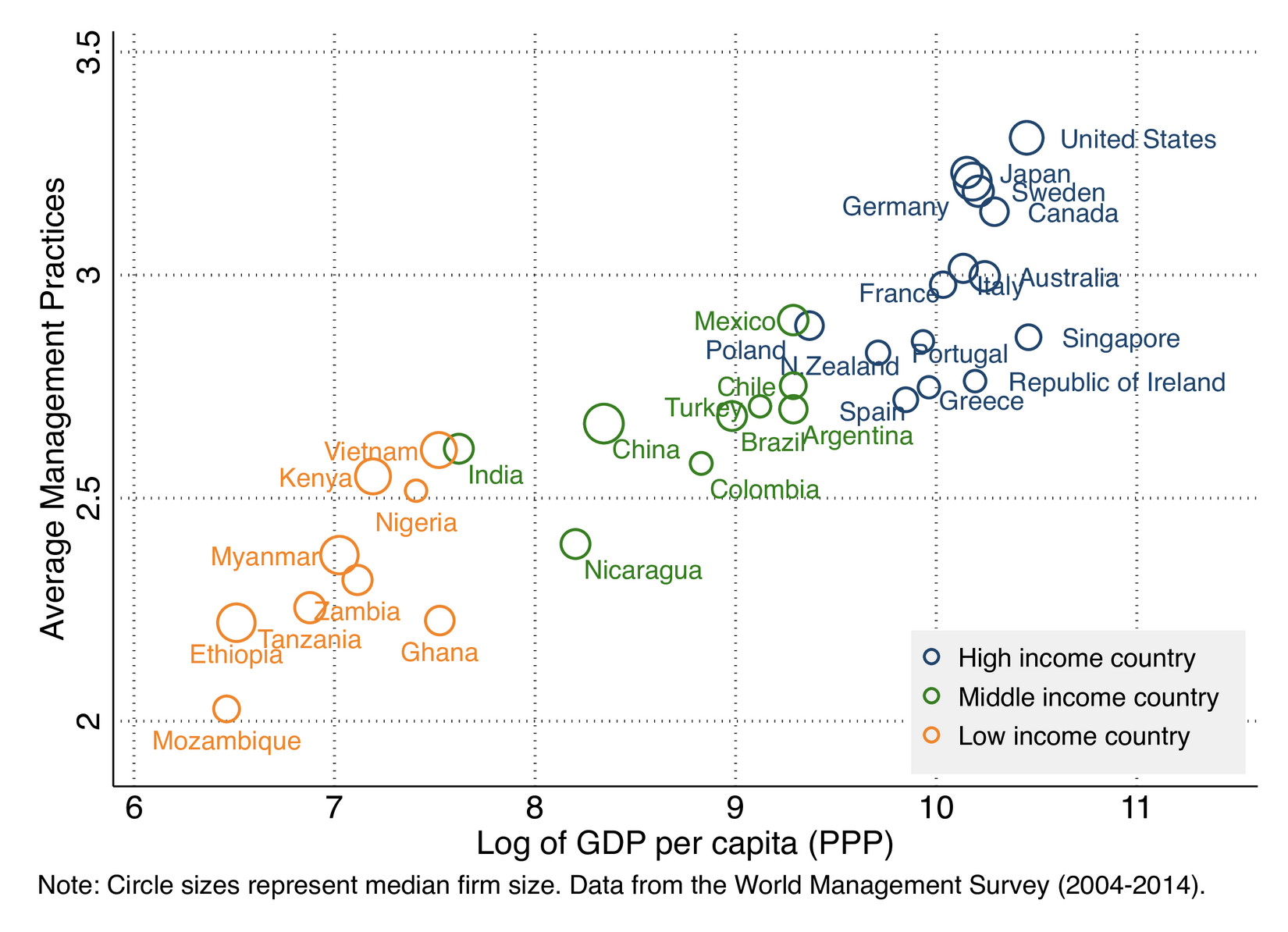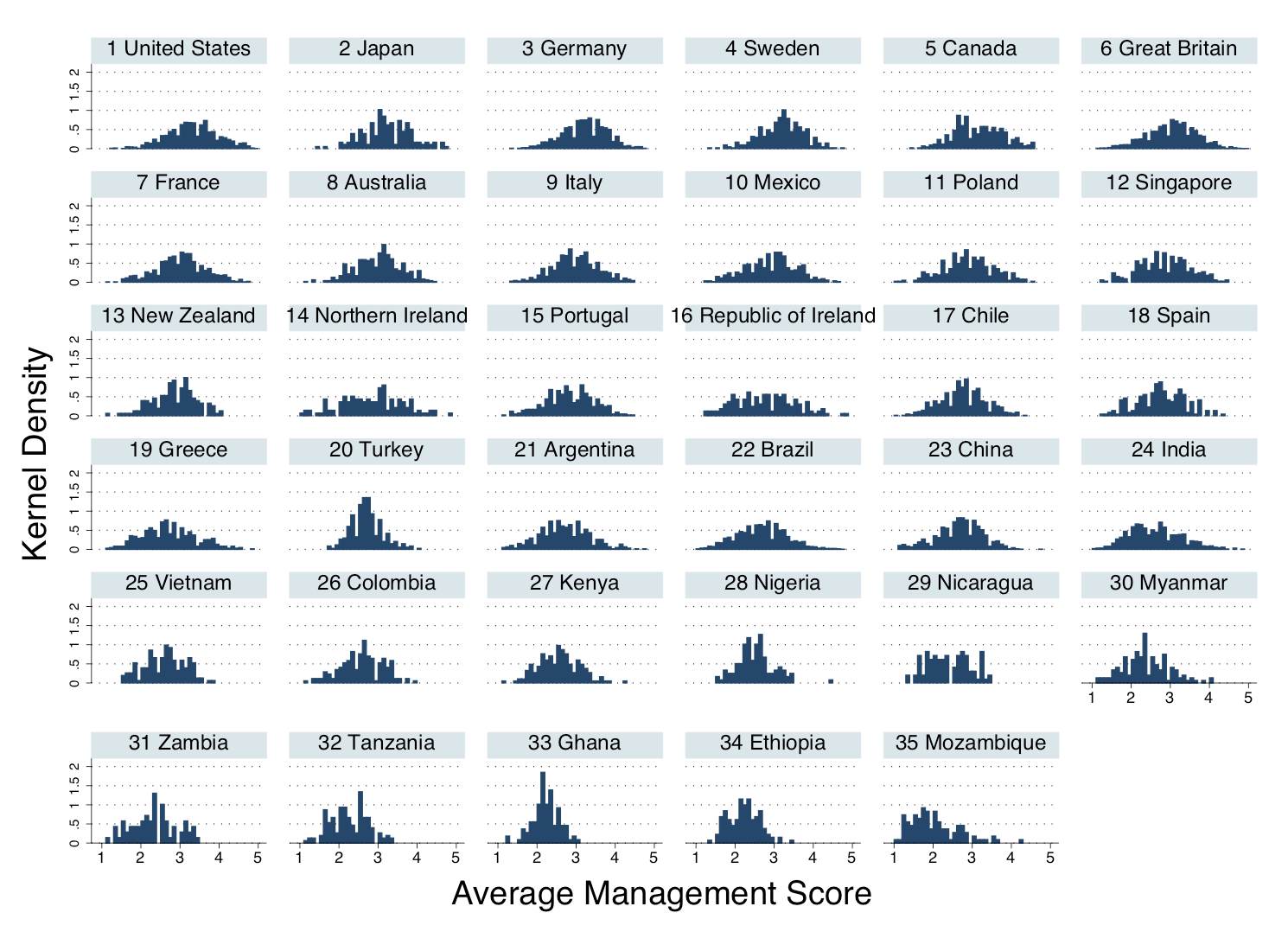Personnel Management and School Productivity: evidence from India (conditionally accepted at the Economic Journal)
with R. Lemos and K. Muralidharan
[Online appendix] [NBER WP 28336]
This paper uses new data to study school management and productivity in India. We report four main results. First, management quality in public schools is low, and ~2σ below high-income countries with comparable data. Second, private schools have higher management quality, driven by much stronger people management. Third, people management quality is correlated with both independent measures of teaching practice, as well as school productivity measured by student value added. Fourth, private school teacher pay is positively correlated with teacher effectiveness, and better-managed private schools are more likely to retain more effective teachers. Neither pattern is seen in public schools.
